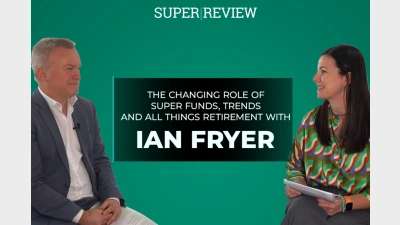Superannuation has not dodged the regulatory bullet



Despite Australia’s continuing “twin-peaks” regulatory model, for most of the past two decades superannuation funds have only ever worried about one regulator – the Australian Prudential Regulation Authority (APRA).
That has clearly changed. The Australian Securities and Investments Commission (ASIC) has now been given greater powers to deal with conduct issues relating to superannuation funds and has made clear its intent to exercise those powers.
If anyone in the superannuation industry doubted this, they need only have listened to ASIC chair, James Shipton’s address to last month’s Financial Services Council (FSC) Leaders Summit in Sydney where he spent a substantial portion of his time detailing the regulator’s approach to trustee misconduct, insurance in superannuation, advice in superannuation and financial loss caused by underperformance.
They might also have cared to closely read the speech delivered by the Assistant Minister for Superannuation, Financial Services and Financial Technology, Senator Jane Hume to the same forum where she said the Royal Commission had showed that “superannuation funds were not outside the misconduct that plagued the financial sector”.
Hume said the Government was “going to reframe the superannuation system so that it workers for members.
So, while many in the superannuation industry may believe that it escaped relatively unscathed from the Royal Commission, they may care to consider the manner in which what was not traversed at the Royal Commission may yet be traversed by ASIC.
Shipton said in his FSC speech that the regulator would be looking particularly “at trustee behaviour that causes monetary loss to members, financial exclusion, loss of market integrity and confidence, and behaviour that undermines competition”.
He said ASIC was also putting trustees on notice where there was persistent underperformance.
“Consumers expect super trustees to act in their best interests to improve retirement incomes – consistent underperformers are clearly not doing enough. While underperformance is not illegal, it is frequently caused by conduct that does breach the law e.g. conflicts of interest, failure to act in members’ best interests, or lack of diligence by trustees,” he said.
“ASIC will consider persistent underperformance as a key indicator and red flag to help target our work to identify misconduct.”
So, irrespective of whether a fund is a retail master trust or an industry fund, its trustee board should expect that it will come under scrutiny if its investment returns fail to keep pace. What is more, APRA’s deputy chair, Helen Rowell, has consistently told Parliamentary Committees and other forums that a number of industry funds would also be counted amongst the underperformers.
Also to be considered is the fact that APRA, itself, found it necessary to release its updated Corporate Plan with the message that it will be applying a “sharpened focus on regulating non-financial risks and improving outcomes for superannuation members”.
So the message for superannuation fund executives and trustees is that the industry may, indeed, have dodged a Royal Commission bullet, but it may have been looking at the wrong gun.
Recommended for you
In this Super Review Product Spotlight episode, host Maja Garaca Djurdjevic speaks with Ian Fryer, general manager at Chant West, to discuss the latest developments in superannuation.
In this new Super Review Product Spotlight episode, host Maja Garaca Djurdjevic is joined by Ian Fryer, the general manager at Chant West. Together, they explore Chant West's enduring reputation in the industry and share insights on the imminent changes in the super landscape.
While the last two years have been challenging for the superannuation industry, there is more to come in 2022 and super funds will need to rise up to the challenge.
With 20/20 hindsight, the disengagement which occurred with the introduction of the MySuper regime was a mistake which now needs to be urgently corrected.









So the message for superannuation fund executives and trustees is change most of your investment choices to INDEX...so you cannot underperform.
So what exactly are examples where super funds regarding investment performance have conflicts of interest or failed to act in members’ best interests??? Dont get it. Fund managers with rip off fees choose where to investment peoples money. Super funds just largely administer it.